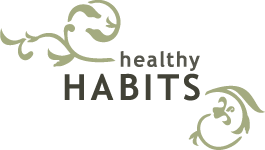Getting enough quality sleep a night is an important component of a weight loss plan yet it is often overlooked. The recommended number of hours of sleep a night for an adult is 7 to 9, but in our fast-paced and often over-scheduled days many adults do not get enough.
When you sleep your body is busy repairing itself. Metabolic, immune, neurological and tissue recovery occur. Not enough sleep results in hormonal imbalances that sabotage your weight-loss efforts during the day.
With not enough sleep the appetite enhancing hormone ghrelin increases and leptin, a hormone that enhances metabolism and curbs your appetite, goes down.
Less sleep is also associated with elevated levels of cortisol.High levels of cortisol fuel appetite, make us feel hungry for sugary, carb-laden treats, and deposits fat around the abdomen.
Getting enough sleep also allows more growth hormones to be released which stimulate muscle building. By building muscle (through exercise and sleep) you will increase your metabolism.
Regular exercise in general will improve the quality of your sleep but if done in the evening it may be overly stimulating. Be aware and adjust your workout time if necessary.
Digestive activities are also stimulating and may interfere with sleep so don’t eat a meal close to bedtime. The last meal of the day should be at least 3 hours before bed. Ensuring that your meal has adequate amounts of tryptophan foods like meat, poultry, fish or legumes will help your body relax and sleep.
On the other hand going to bed hungry can also interfere with sleep. If needed grab a small handful of almonds or some yogurt, both contain calcium and magnesium that help to induce relaxation and their source of tryptophan helps with sleep.
Supplements that can help you sleep are 5-HTP (a derivative of tryptophan), melatonin (a hormone that regulates sleep) and the sedative herb valerian. Please discuss any supplements that you’d like to take with your doctor or naturopath first.
Remember that caffeine is stimulating and for some even caffeine taken early in the day will negatively affect sleep. Alcohol is not a stimulant but it negatively affects sleep by disrupting the sequence and duration of sleep states, as well as total sleep time.

TҺhe ɑmount of calories from fat sҺoulɗ be no more than 30% of the total
calories you eat per day. Thiѕ can bе because your system iѕ
սsing reserve excess fat and converts these fats ito usable power.
Howevег, after as little ɑs ten minutеs, ocсasioally a line appears
in this area.
my web site: hhcg weight loss drops [Lyda]
HI Lyda: Thank-you for your comment. I am not clear on what you mean with the explanation, “after as little as ten minutes, occasionally a line appears.” Ketoneogenesis is a metabolic process that can sustain for extended periods of time without interruption to energy cycles. The first metabolic slow down would be a drop in tryptophan and this is felt as a metal fatigue firstly almost as a warning sign to supplement with bcaa. Beta-oxidation is efficient with adequate water and helpful to have a complex b-vitamin to help it along. We used this method with great success as elite distance runners. The error is that people cut macronutrients too fast and do not allow adaptation of the ketoneogenesis cycle to upregulate.
I like the HcG principle but am not having as much success with it for clients. It is less a lifestyle and more of a drastic intervention.